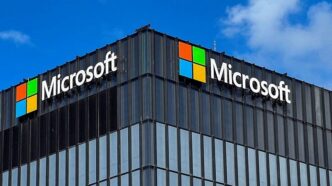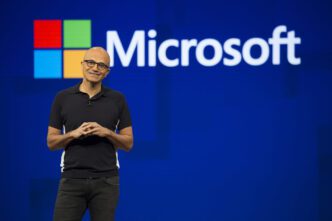At its Build 2025 conference, Microsoft announced that it along with its subsidiary GitHub has officially joined the steering committee for the Model Context Protocol (MCP), a standard developed by Anthropic to help AI models securely access and interact with external data systems.
The move signals Microsoft’s deepening commitment to building open, interoperable foundations for AI development. It also gives a significant boost to MCP, which has already gained backing from OpenAI and Google this year.
What Is MCP and Why It Matters
MCP is an open protocol designed to link AI models to the real-world data and tools they need to function effectively. It allows developers to build two-way communication channels between AI systems and business apps, content repositories, and software development environments.
Through MCP, developers can create MCP servers—which expose specific data and functions—and MCP clients—apps or workflows that query those servers. The result is a flexible, plug-and-play framework for building advanced AI capabilities into virtually any software environment.
Microsoft says it will introduce “broad first-party support” for MCP across Windows 11 and Azure. In practice, this means that developers can expose system-level features such as the File System, Windowing, and the Windows Subsystem for Linux (WSL) to MCP-compatible AI models. These capabilities can be made available via MCP servers, allowing models to interact with core OS functionalities in a secure, structured way.
Strengthening the Standard with Identity and Discovery Tools
Microsoft’s identity and security teams have been working closely with Anthropic and the broader MCP community to co-design a new authorization standard. This spec enhances the security of MCP connections by supporting trusted sign-in methods, making it safer for users to grant AI-powered apps access to sensitive data, storage accounts, and subscription-based services.
Meanwhile, GitHub has helped architect a new registry service for MCP. This registry makes it easier for developers to discover, manage, and configure MCP servers—whether public or private—within their organizations or the broader software ecosystem. The goal is to simplify how developers integrate and maintain MCP-compatible services at scale.
MCP is emerging as a foundational layer for agentic AI—AI systems that can initiate and carry out complex tasks across tools and environments. With GitHub and Microsoft now helping guide the protocol’s future, MCP’s adoption is likely to accelerate. By embedding support into widely used platforms like Azure, GitHub, and Windows, Microsoft is betting big on an open ecosystem where AI agents can operate securely, transparently, and at scale.













